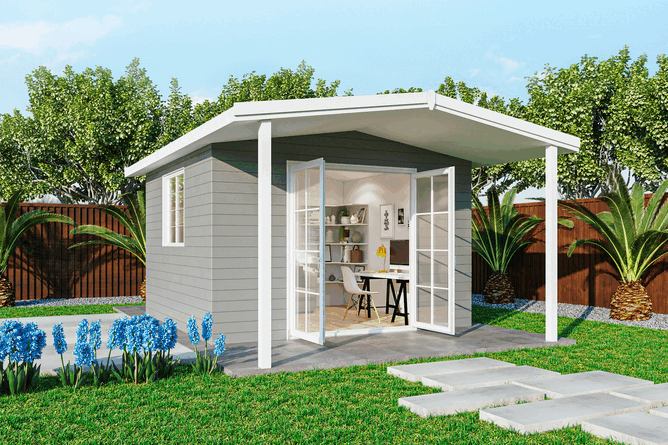Are you worried about your future ability to stay in your home and don’t want to consider residential aged care? Perhaps your children are struggling to get a foot-hold in the property market and you want to help them out? What if your children suggest you come and live with them? Or they suggest you buy a property where you can all live?
These situations may have you thinking about granny flats.
What is a granny flat?
Talking about granny flats normally conjures up images of a small unit in the backyard of a child’s family home, where older parents can live. But from a Centrelink/Veterans’ Affairs perspective, a granny flat interest is a much wider concept.
It covers private arrangements where you transfer money and/or assets (including property) to someone else, and in exchange, they give you a lifetime right to accommodation.
5 types of granny flat
You can create a granny flat arrangement in one of five ways:
1. Transfer the title of your home to someone
2. Buy a home in someone else’s name
3. Transfer money and/or assets to someone
4. Pay for renovations or an extension to someone else’s home
5. Pay to build a stand-alone granny flat in someone else’s backyard
And in exchange, that person gives you a lifetime right to accommodation in a private residence.
Centrelink/DVA assessment
Normally, when you transfer money and/or assets to someone and don’t get anything for it, Centrelink/DVA apply gifting and deprivation rules which penalise you for amounts gifted above $10,000 (or $30,000 over five-year periods).
In the case of a granny flat interest, you are getting something back - a lifetime right to accommodation. But putting a value on it can be difficult, and the rules complex. Is the amount a “gift” that is assessed under deprivation rules or is it considered a reasonable purchase price for the right to permanent accommodation (so fair value received)? These rules are complicated and we recommend you seek advice as to the valuation and deprivation rules.
A granny flat arrangement does not have to be between an adult child and their ageing parent/s. Arrangements can be between anyone, even if you’re not related. Just as long as the arrangement is in a private residence.
What are the benefits?
The arrangement might provide benefits for both you and your children:
• Your children might gain access to the housing market or upgrade/improve an existing family home.
• Families are busy but you might have time to help with household tasks, child minding and driving the children to sport or other activities.
• You get to see your children and grandchildren on a regular basis and they will form part of your network of friends.
• As you age, your children may provide support with everyday tasks and other caring roles.
• You may be able to implement some estate planning strategies and still retain a place to live for the rest of your life.
What are the risks?
Families normally have good intentions to honour promises when the agreement is set up. But sometimes things go wrong or life changes.
You need to think about these possibilities carefully to determine if they are risks you can afford to take, options to minimise the impact (or risk) and whether a granny flat arrangement is a good idea or not.
Some of the potential risks include:
• Your child becomes seriously ill or disabled, or passes away before you.
• Your child faces business failure, bankruptcy or other financial problems that force the sale of the home you are living in.
• Your child experiences a relationship breakdown or divorce.
• Your child needs to relocate interstate for work, health, or other commitments.
• You need to access residential care.
• You have a change in your significant relationships (divorce or marriage).
• Your relationship with your child becomes strained for other reasons.
It might seem a bit unnecessary at the start, but while a formal, written agreement won’t prevent these events happening or even solve all of the problems, it might help set some ground rules and provide some protection. Legal advice is key!
The terms of a written granny flat agreement might include:
• Expectations of mutual duties – child minding, household tasks, caring and support, etc.
• The sharing of daily expenses and other costs, including maintenance and repairs.
• What happens if the agreement needs to end.
Factual Advice Warning: This document has been prepared based on our understanding of the relevant legislation at the time of writing. While every care has been taken, Aged Care Pathways WA makes no representation as to the accuracy or completeness of the contents. Any information provided in this website is purely factual in nature and does not take into account your personal objectives, situation or needs. The information is objectively ascertainable and is not intended to imply any recommendation or opinion. This does not constitute financial product advice under the Corporations Act 2001 (Cth). Before making decisions, you should consider the appropriateness for your personal investment objectives, financial situation or individual needs. We recommend you see a financial adviser, registered tax agent or legal adviser before making any decisions based on this information.


